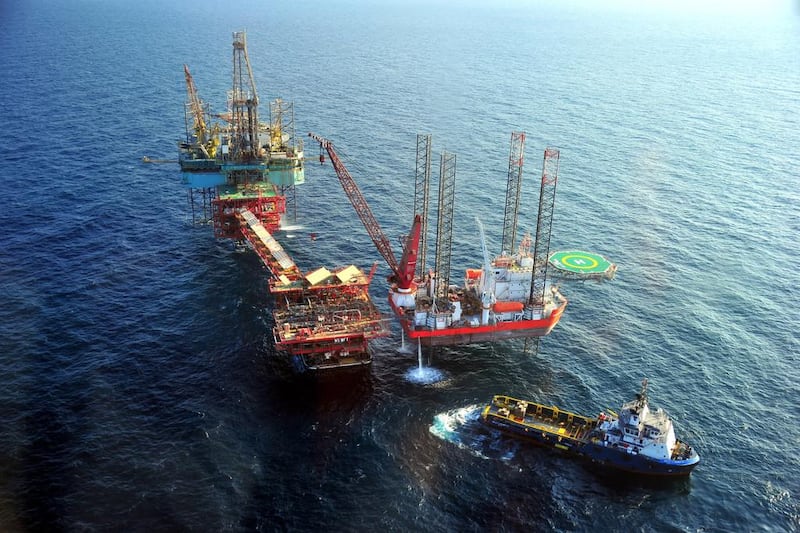Abu Dhabi’s economic growth will catch up with Dubai next year, as government-led infrastructure projects provide a boost to the capital’s non-oil economy, an IMF official said yesterday.
The fund is projecting growth of 3.3 per cent for Dubai's economy this year, while Abu Dhabi is forecast to expand only 0.3 per cent because of its heavy reliance on oil, production of which has been cut in compliance with an agreement to cut crude output globally.
“Abu Dhabi has big oil and non-oil sectors [and] slower growth is due to the oil sector’s performance because of the Opec-led production cuts and exports that went down this year. It will recover next year,” said Jihad Azour, the director of the IMF’s Middle East and Central Asia department.
__________________________
Read more:
[ IMF calls on GCC to speed up reforms as it lowers growth forecasts ]
[ World Bank lowers growth forecast for Arabian Gulf on oil cut adherence ]
_________________________
As an Opec member, the UAE is obliged to adhere to an oil deal struck last November between the group and a separate group of oil-producing countries led by Russia, which is culling 1.8 million barrels of crude per day from the market until the end of next March.
The move is aimed at propping up prices in an oversupplied market. Brent last week rose above US$60 per barrel, partly on hopes the global deal will be extended beyond March.
Dubai’s economy, which recorded 2.9 per cent growth last year, is forecast to expand 3.5 per cent in 2018, while Abu Dhabi is projected to grow at a pace of 3.2 per cent compared with 2.8 per cent last year.
The UAE's overall growth is projected to slow to 1.3 per cent this year from 3 per cent last year, but pick up next year to reach 3.4 per cent.
“Growth in Dubai is cruising at a relatively good speed. Both Dubai and Abu Dhabi are more diversified economies than the other countries in the GCC,” said Mr Azour.
“You have the investments in the Expo 2020 and you have also investments in infrastructure in Abu Dhabi. Those factors are allowing these two cities to grow.”
Officials from government body Dubai Economy forecast that the emirate's GDP will expand 3.1 per cent this year and 3.6 per cent next year, as economic drivers shift from trade to real estate, manufacturing and tourism.
Dubai plans to spend Dh47.3 billion in 2017, a budget that will be driven by a 27 per cent jump in infrastructure spending as the emirate prepares for Expo 2020.
The IMF’s projections are slightly different from forecasts from two other Washington institutions – the World Bank and the Institute of International Finance.
The World Bank is forecasting growth of 1.4 per cent for the UAE this year, but a pickup of 3.1 per cent next year.
Overall growth is expected to rise to 3 per cent over the medium term thanks to a pickup in the non-oil sector, the bank said in a report last month.
“Non-oil growth is projected to rebound as the expected improvement in oil prices and its positive effects on confidence and financial conditions dampen the effects of fiscal consolidation; and as megaproject implementation ramps up ahead of Dubai’s hosting of Expo 2020 – expected to draw in many visitors, boosting private consumption and services exports,” the Washington lender said.
The Institute of International Finance, meanwhile, is projecting that the UAE’s economy will grow 1.5 per cent this year and accelerate further to 2.9 per cent next year.
“Economic performance is likely to improve in 2017 and 2018 with firming oil prices, improvement in global trade, and the expected easing pace of fiscal adjustment,” said the IIF in a recent report.
“We expect non-oil real GDP growth to accelerate to 3 per cent in 2017 and 3.5 per cent in 2018, supported by investment in preparations for the Expo 2020 and improvement in private sector sentiment with the gradual recovery in oil prices.”
It is forecasting that Dubai will grow 3 per cent this year, while Abu Dhabi’s economy will expand 0.8 per cent.






